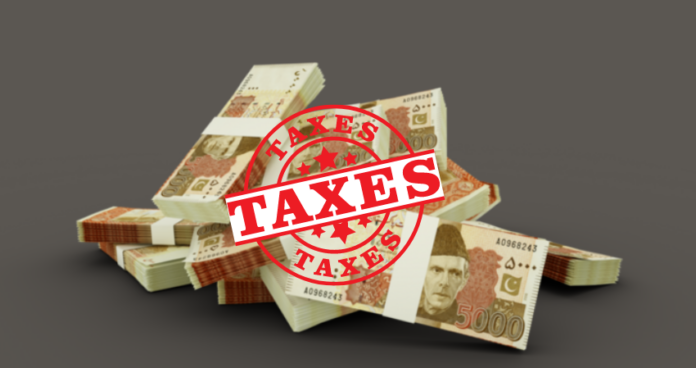The retailers of the country have had it easy compared to other participants in the supply chain. Multiple efforts have been done in the past to try to impose a tax on these retailers but all have failed. It seems that the government finally has a plan of action.
So what has been done? It seems that the government has found a way to either tax these non-filing retailers at a higher rate or bring them into the tax net. For any retailer who is seen as a non filer, the gross amount of sales made to the retailer will see withholding tax of 2.5%.
Let us explain through an example.
Consider the supply chain of a product. We can use our favourite example of Cocomo. After all the slogan is mujhay bhi do. So why not? When Cocomo is produced by Ismail Industries, they bring together the raw materials like chocolate, wheat and sugar. Next, they use labour who work on their machines and in their offices to come up with catchy slogans like Mujhay bhi do. In addition to that, the company carries out further expenditure like for packaging and distribution. For all the expenses that they incur, Ismail Industries is liable to cut a withholding tax on the expenses they have paid for. Even if one of its owners wants to make a trip at the expense of the company, the company has to withhold the payment made to the agent who sold the ticket. Ismail Industries is designated as a withholding agent by the Federal Board of Revenue.
The company also sells their goods in the market which also makes them liable to pay a general sales tax. A pack of Cocomo is produced for Rs 14. In order to make a profit, the company decides to sell it to the wholesaler for Rs 15. The market price of these Cocomos at the end of the supply chain will be Rs 17.1. For every Cocomo sold, the government will charge Rs 2.9 as the goods have 17% sales tax slapped onto them. The sales tax is paid by the customer but the government has a better mechanism to tax this tax. The government will go to the accounts of Ismail Industries and see that they have sold 1 Cocomo for Rs 15 and the market price for the good is Rs 17.1 so they will ask Ismail Industries to pay up Rs 2.9.
But where will Ismail Industries come up with this money? In order to do so, Ismail will sell the product to the wholesaler for Rs 17.9. As the wholesaler sells that packet to the retailer, he will sell it for Rs 19 and then the retailer will sell it to the customer for Rs 20. The basic mechanics of the system are designed so that as the product moves down the supply chain, the next person in the chain pays the tax back to the first party. This way, the government is able to earn the tax from the company while they get to earn it back later.
But one thing becomes evident after this. The manufacturer is paying withholding taxes while the customer is paying the general sales tax. What about the wholesaler and retailer? What about the profit or income that they have earned? How do they calculate the tax that they are supposed to give and how does the government collect it?
That is one of the key problems that the government faces as they are unable to tax the retailers. Two years ago, the government tried to tag fixed expenses onto the electrical bills of the retailers in order to calculate some form of tax from these retailers, however, they protested and the tax was withdrawn. Even a few months ago, a scheme called “Tajdar Dost Scheme” was announced which looked to register retailers in order to collect taxes from them. Till date, only 3400 retailers have become part. It is evident that all of these efforts have failed till now.
It seems now that one more effort has been made to address this. At this point of time, there are certain sectors where the supply chain sees advance withholding tax being deducted from it. The new proposal is that in order to reduce non-filers, the scope of advance tax on the whole supply chain is to be put into place.This would mean that rather than cutting 1% of advance withholding tax, 2.25% is deducted. This would force many of the non-filers to become filers in order to reduce their withholding tax deductions.
The Tier-1 retailers categorized by FBR will also see their sales tax rate increased. FBR classified luxury items based retailers that deal in branded textile and leather goods. The previous tax rate was 15% sales tax that was applied on them which has been proposed to be increased to 18%. The government feels that the customers who shop at these retailers can bear this expense and these goods should see a levy of additional tax on them.




